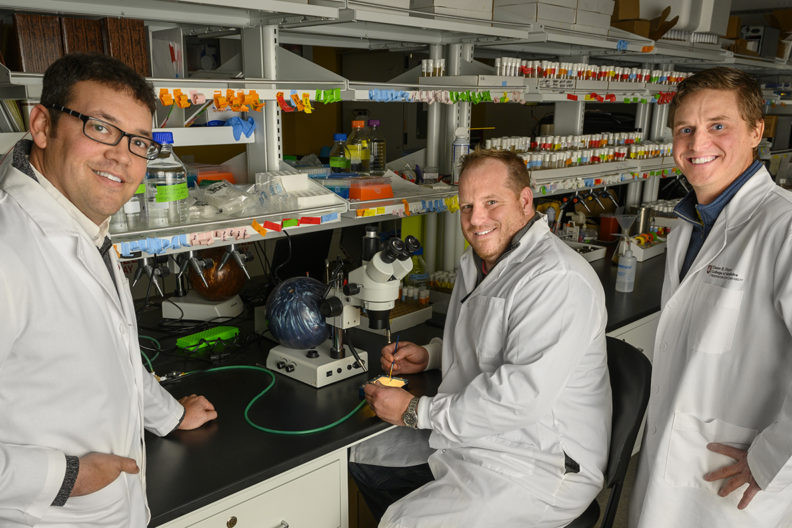WSU's ‘Sleep gene’ research earns five-year grant from National Institutes of Health
Thursday, December 5, 2019

Research into how genes influence our need to sleep has earned a research team at WSU Elson S. Floyd College of Medicine a five-year grant from the National Institutes of Health totaling
$1.9 million.
While scientists have described some of the workings of our inner clock, or circadian rhythms, little is known about sleep homeostasis also called “sleep pressure.” Sleep homeostasis is the slow build of our need to sleep created by time and activity. For instance, this process is why we want to sleep extra late in the morning after staying up for a long night. Sleep homeostasis is a separate process from circadian rhythms, which are tied to daily cycles of light and darkness, but the two influence each other, and that interaction is what the WSU team plans to investigate.
“We’re interested in how these processes come together,” said Jason Gerstner, a WSU research assistant professor and lead researcher on the grant. “We want to see how the circadian component is communicating or leading the mechanisms that underlie homeostasis. We hypothesize that these two systems help to regulate cognitive function, particularly learning and memory.”
The new research will build off earlier work led by Gerstner which found that the FABP7 gene helps to regulate sleep in humans as well as in mice and fruit flies. In a 2017 paper published in Science Advances, Gerstner and his team showed that those who did not have a normally functioning version of this gene slept more fitfully compared with those who did.
With the NIH grant, Gerstner, along with assistant research professor William Vanderhayden and clinical associate professor Chris Davis, will use animal models to determine how FABP7 and other genes influence sleep homeostasis and circadian rhythms, affecting sleep and long-term memory.
Photo: Chris Davis, Jason Gerstner, and William Vanderheyden